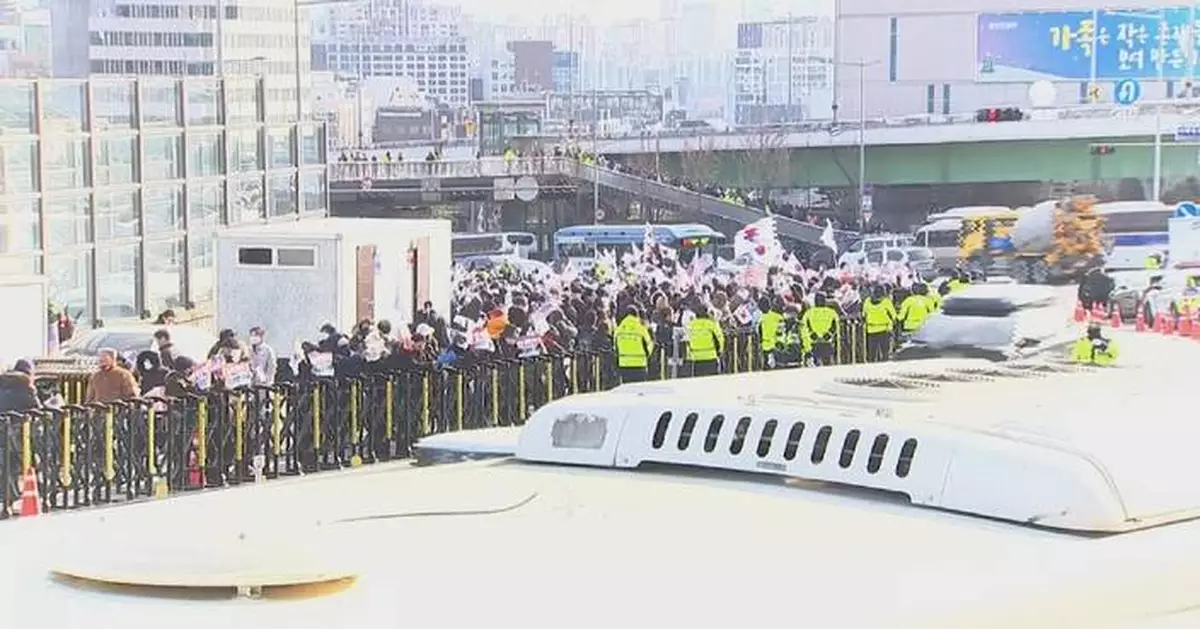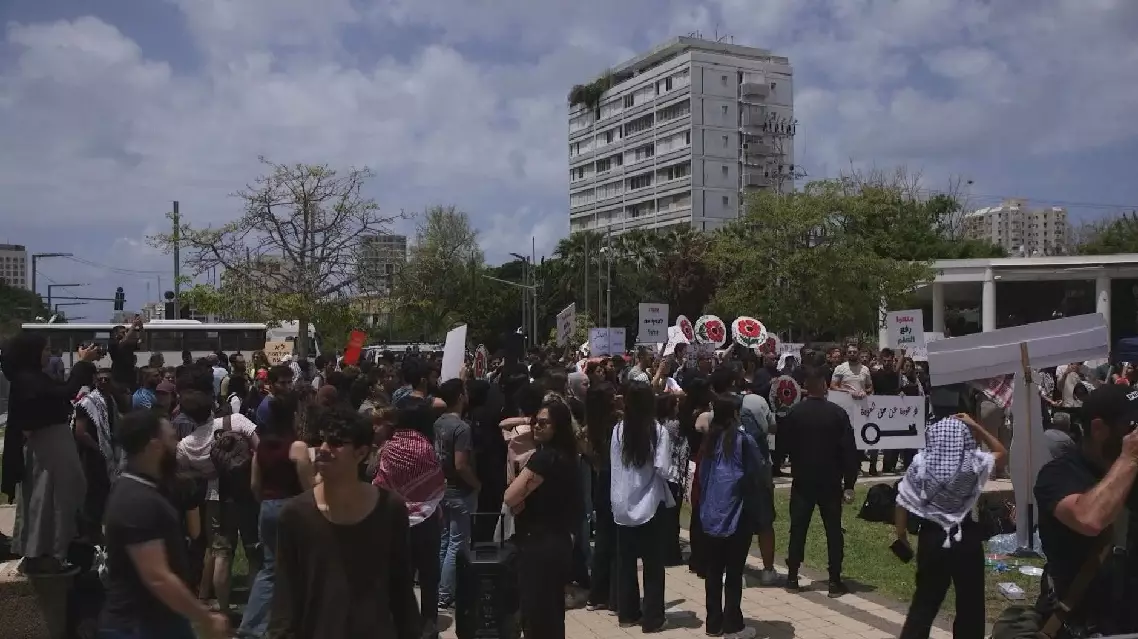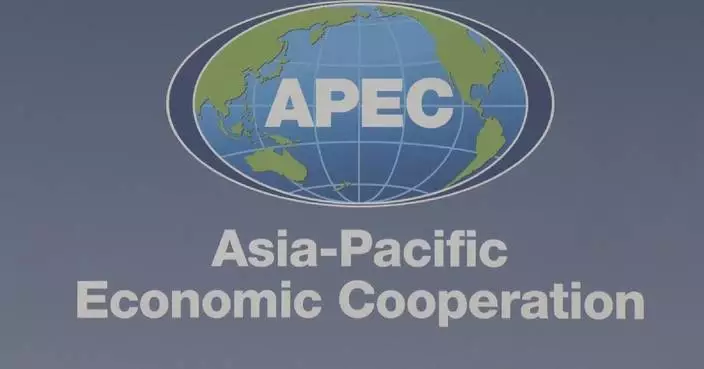South Korean investigators with the anti-corruption investigative authorities left the presidential residence after failing to arrest impeached President Yoon Suk-yeol on Friday.
Earlier in the day, a group of prosecutors and investigators of the Corruption Investigation Office for High-ranking Officials (CIO) arrived in the presidential residence in central Seoul, and attempted to arrest the impeached president over his short-lived martial law imposition on December 3, 2024.
At one point, the group of prosecutors and investigators tried to force their way into the presidential residence to arrest Yoon, leading to a brief physical conflict with the security guards manning the presidential residence. After the confrontation, the prosecutors and investigators had to stop proceeding with the arrest warrant.
The CIO said the continued confrontation virtually made it impossible to execute the arrest warrant against Yoon, which was issued by a Seoul court on Tuesday.
The CIO noted that it stopped the execution at about 13:30 local time over concerns about the safety of investigators at the scene, expressing deep regret over the attitude of Yoon who refused to comply with legal procedures.
The investigative authorities added that it will decide on future measures after relevant reviews.
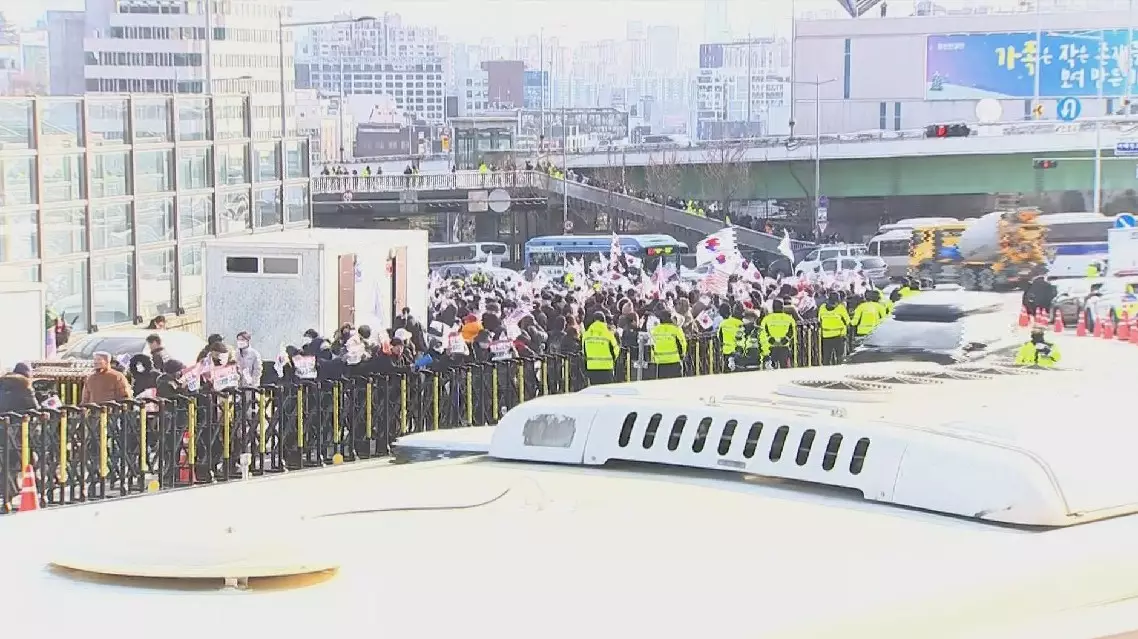
South Korean investigators leave presidential residence after failing to arrest Yoon
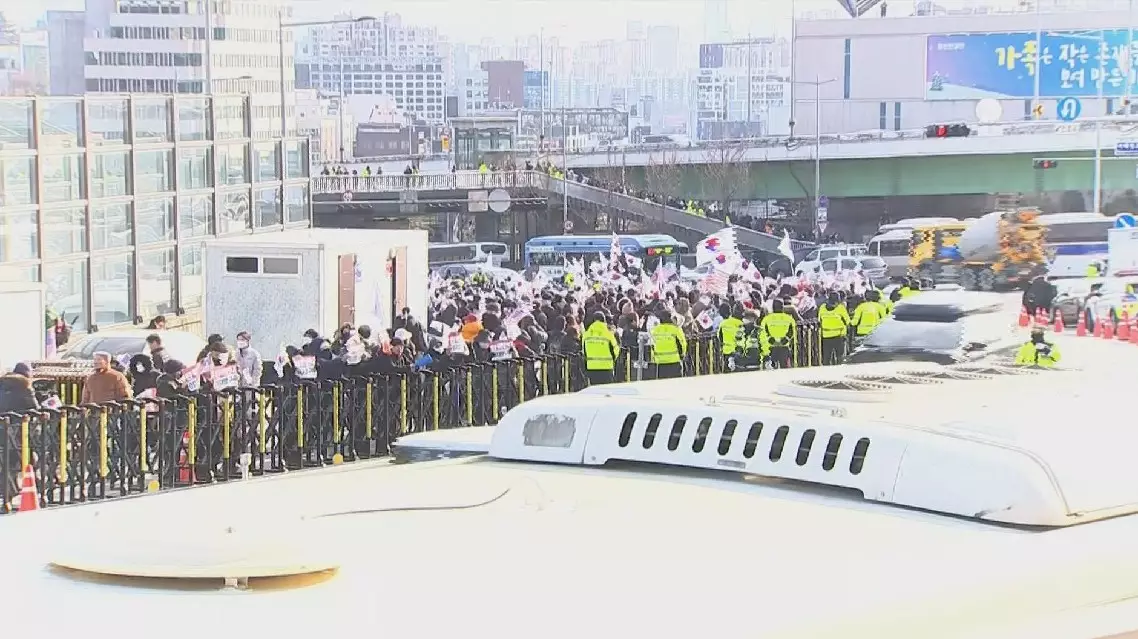
South Korean investigators leave presidential residence after failing to arrest Yoon
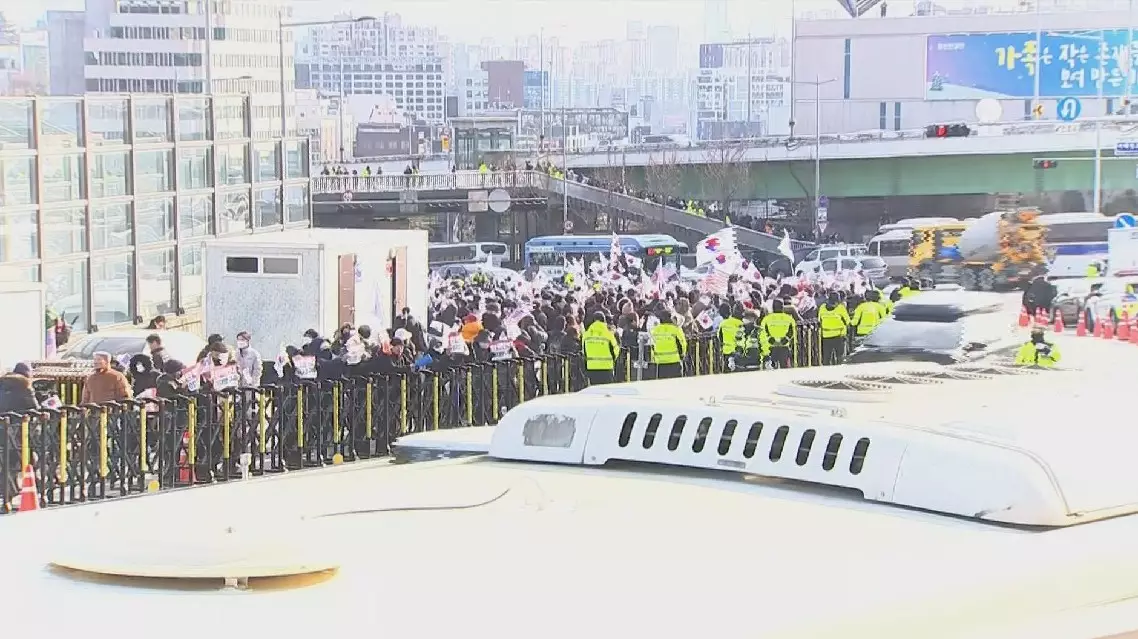
South Korean investigators leave presidential residence after failing to arrest Yoon
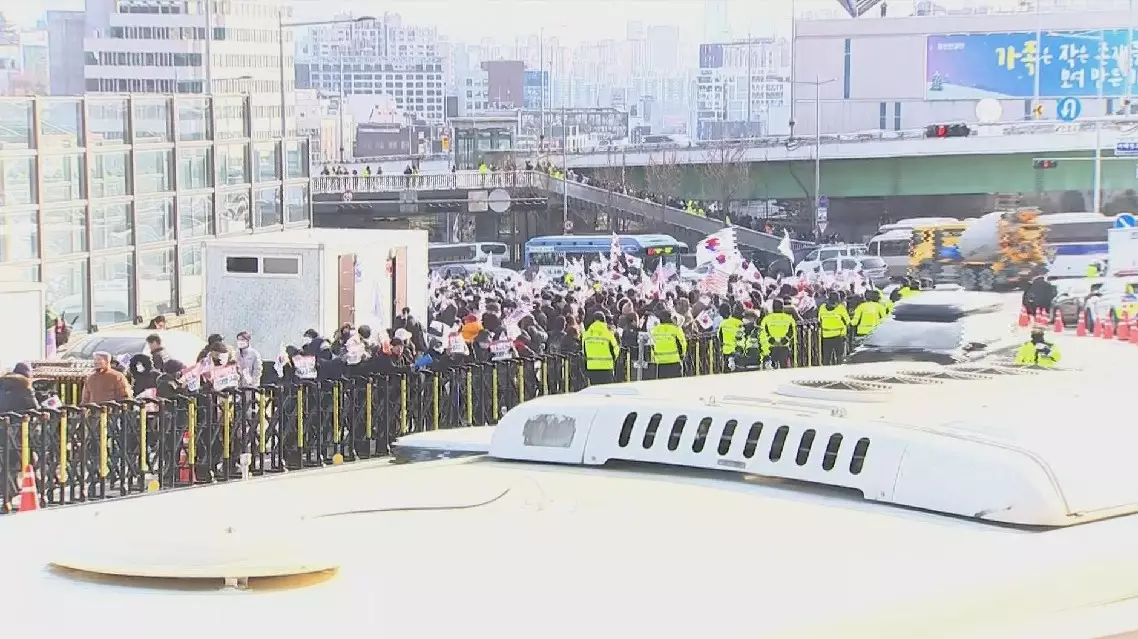
South Korean investigators leave presidential residence after failing to arrest Yoon


